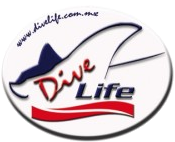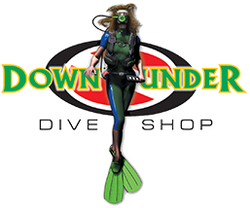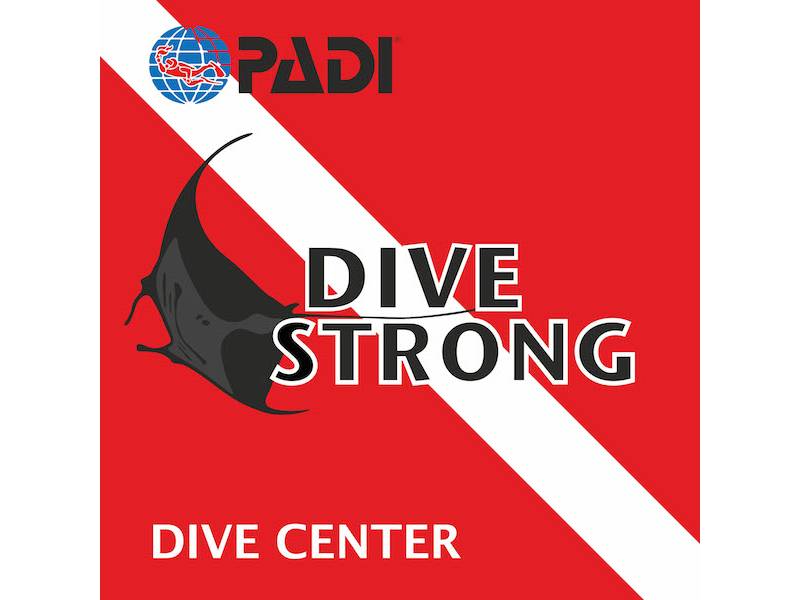In my local dive community, it seems that when spring peeks around the corner, dive gear comes out of hibernation and hits the Dive Gear Sales – at both the local dive club level and on-line. Sometimes, questions that come up are “why did you buy that first” and “why did you buy that (in the first place)”, accompanied by “why are you selling that”?
This gave me some cause to ponder. So I looked at the gear I have put up for sale in the last while and came up with these general thoughts about what I bought first, why and why sell it.
This gave me some cause to ponder. So I looked at the gear I have put up for sale in the last while and came up with these general thoughts about what I bought first, why and why sell it.
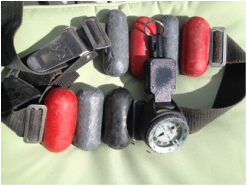
What Did I Buy first?
When I first started diving, my first purchase was a weight belt with bullet-style lead weight. No, not a set of regulators, a dry suit, computer or tanks etc. I found that when I traveled by land (weights are very heavy to take by plane) I rarely found weights at dive destinations that were not large plate-weights and square. Very, very uncomfortable on my hip bones! So, comfort being foremost – I bought weights that fit! The second item I bought was a compass – every time I rented a set of regulators, the compass didn’t work that well (either due to being misused and left dirty, or because not all compasses behave the same). So, I bought a compass - you can get back to where you started from and you can trust that it works properly – more practice equals better performance. And you have your own for your PADI Navigation Course.
My next purchase was the big one – my dry suit. I decided when I first started diving that I would determine the cost of renting my full kit – regulator, dry suit, BCD, hood, and gloves and calculate how long it would take me to have paid for it through rental fees (my mask, snorkel and fins were a gift). At that time, I calculated it as 70 dives. I knew people who had bought full sets of gear when they first started diving and then it languished in their gear bins (I am guessing waiting for the excitement of Spring Dive Gear sales). By 70 dives I was fairly certain I would be committed to this fantastic sport. Truth! Dry suits keep you dry when they fit you – so my first dive after my dry suit purchase, I was dry! And, I also knew I was going to continue to dive. A worthwhile expense.
The next items in my gear kit were my BCD – a gift; my regulators (piece by piece – gifts); and my computer – a consignment purchase (awesome snag!). These items are more regularly available and not so specific to the individual, so more rent-able.
When I first started diving, my first purchase was a weight belt with bullet-style lead weight. No, not a set of regulators, a dry suit, computer or tanks etc. I found that when I traveled by land (weights are very heavy to take by plane) I rarely found weights at dive destinations that were not large plate-weights and square. Very, very uncomfortable on my hip bones! So, comfort being foremost – I bought weights that fit! The second item I bought was a compass – every time I rented a set of regulators, the compass didn’t work that well (either due to being misused and left dirty, or because not all compasses behave the same). So, I bought a compass - you can get back to where you started from and you can trust that it works properly – more practice equals better performance. And you have your own for your PADI Navigation Course.
My next purchase was the big one – my dry suit. I decided when I first started diving that I would determine the cost of renting my full kit – regulator, dry suit, BCD, hood, and gloves and calculate how long it would take me to have paid for it through rental fees (my mask, snorkel and fins were a gift). At that time, I calculated it as 70 dives. I knew people who had bought full sets of gear when they first started diving and then it languished in their gear bins (I am guessing waiting for the excitement of Spring Dive Gear sales). By 70 dives I was fairly certain I would be committed to this fantastic sport. Truth! Dry suits keep you dry when they fit you – so my first dive after my dry suit purchase, I was dry! And, I also knew I was going to continue to dive. A worthwhile expense.
The next items in my gear kit were my BCD – a gift; my regulators (piece by piece – gifts); and my computer – a consignment purchase (awesome snag!). These items are more regularly available and not so specific to the individual, so more rent-able.
Why are you selling it?
I recently sold a jacket-style BCD for a relatively small sum and was asked ‘why do you want so little cash for it?’ My reply was that it was a few years old and I wasn’t using it anymore, it needed someone else to love it.
The other consideration is – what style of diving is the equipment appropriate for? As a dive Instructor and Course Director, I have gear that is specific to certain types of teaching – Tec, Sidemount – which differ from regular recreational diving, so a simple BCD (in the case of the one recently sold – ladies jacket style) doesn’t work so well for me anymore. However, that still leaves me with four – 4 – BCD’s, that I actively dive and one that is specific to infrequent dives (hmmm, next gear sale item perhaps).
Also consider how often it is used. Given that I dive both cold and warm water conditions, I have gear suited to staying at home (cold conditions, bigger lift capacity due to higher weight requirements) and travel (warm conditions, lighter lift capacity due to lighter weights and also baggage restrictions). Divers that are changing their dive lifestyle – sell their gear (to keep it happy), during Spring Dive Gear sales!
I recently sold a jacket-style BCD for a relatively small sum and was asked ‘why do you want so little cash for it?’ My reply was that it was a few years old and I wasn’t using it anymore, it needed someone else to love it.
The other consideration is – what style of diving is the equipment appropriate for? As a dive Instructor and Course Director, I have gear that is specific to certain types of teaching – Tec, Sidemount – which differ from regular recreational diving, so a simple BCD (in the case of the one recently sold – ladies jacket style) doesn’t work so well for me anymore. However, that still leaves me with four – 4 – BCD’s, that I actively dive and one that is specific to infrequent dives (hmmm, next gear sale item perhaps).
Also consider how often it is used. Given that I dive both cold and warm water conditions, I have gear suited to staying at home (cold conditions, bigger lift capacity due to higher weight requirements) and travel (warm conditions, lighter lift capacity due to lighter weights and also baggage restrictions). Divers that are changing their dive lifestyle – sell their gear (to keep it happy), during Spring Dive Gear sales!
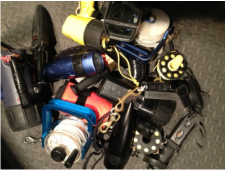
Buy new or used?
Important considerations – I feel very fortunate that my first purchases of used gear were bought from honorable sellers (in my case a dive shop that still is a pleasure to deal with). If you are new to the sport of diving and wish to make sure you are purchasing quality used gear, local dive centers often put their used gear up for sale. This is a good place to start if your knowledge about what you are looking for and what is suitable to your diving desire is limited. You won’t over or under purchase gear suitable for you. If they don’t have what you need – they can likely provide a price-range for what you should expect to pay for used gear. Also, they are in a great position to give you a ‘life expectancy’ idea and you can then determine if the cost is appropriate to the time frame.
Next thought – bring that ‘service technician’ buddy along with you, or your particularly gear-savvy dive friend. In this way, they may be able to suggest that what you are looking at isn’t a high priority over other items, or that the quality isn’t what it should be etc. Then you won’t end up with too many reels, lights, shiny things (hmmm, more gear sale items waiting for next Spring!)
Important considerations – I feel very fortunate that my first purchases of used gear were bought from honorable sellers (in my case a dive shop that still is a pleasure to deal with). If you are new to the sport of diving and wish to make sure you are purchasing quality used gear, local dive centers often put their used gear up for sale. This is a good place to start if your knowledge about what you are looking for and what is suitable to your diving desire is limited. You won’t over or under purchase gear suitable for you. If they don’t have what you need – they can likely provide a price-range for what you should expect to pay for used gear. Also, they are in a great position to give you a ‘life expectancy’ idea and you can then determine if the cost is appropriate to the time frame.
Next thought – bring that ‘service technician’ buddy along with you, or your particularly gear-savvy dive friend. In this way, they may be able to suggest that what you are looking at isn’t a high priority over other items, or that the quality isn’t what it should be etc. Then you won’t end up with too many reels, lights, shiny things (hmmm, more gear sale items waiting for next Spring!)
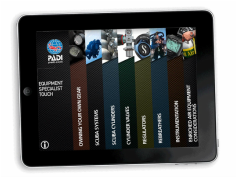
Also, maybe before you even think about buying used gear – think about taking a “PADI Equipment Specialist Course” – it won’t give you the skills on how to rebuild your regulator (that’s a job for Certified Service Technicians!) but it will give you the tips and tricks on how to make regular and minor gear repairs and how to determine whether a piece of equipment is in need of servicing as well as a general idea of what that cost might be. In the end – new might be your best value.
The fact is, if you take good care of your equipment, follow manufactures guidelines for service, cleaning and storage, gear will last a long time. Purchasing used from someone who cares for their equipment can work out to your advantage with the appropriate knowledge on your part; purchased new it will last a long time, likely have a warranty, and your purchase price may become a distant memory!
I like sales – both to shop and to buy - but buyer beware is important. Something to keep in mind – if you want ‘something for nothing’ you might get ‘nothing ‘.
See you in the water (or at the next Dive Gear sale!).
Lana and Randy.
The fact is, if you take good care of your equipment, follow manufactures guidelines for service, cleaning and storage, gear will last a long time. Purchasing used from someone who cares for their equipment can work out to your advantage with the appropriate knowledge on your part; purchased new it will last a long time, likely have a warranty, and your purchase price may become a distant memory!
I like sales – both to shop and to buy - but buyer beware is important. Something to keep in mind – if you want ‘something for nothing’ you might get ‘nothing ‘.
See you in the water (or at the next Dive Gear sale!).
Lana and Randy.
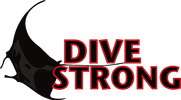
 RSS Feed
RSS Feed
